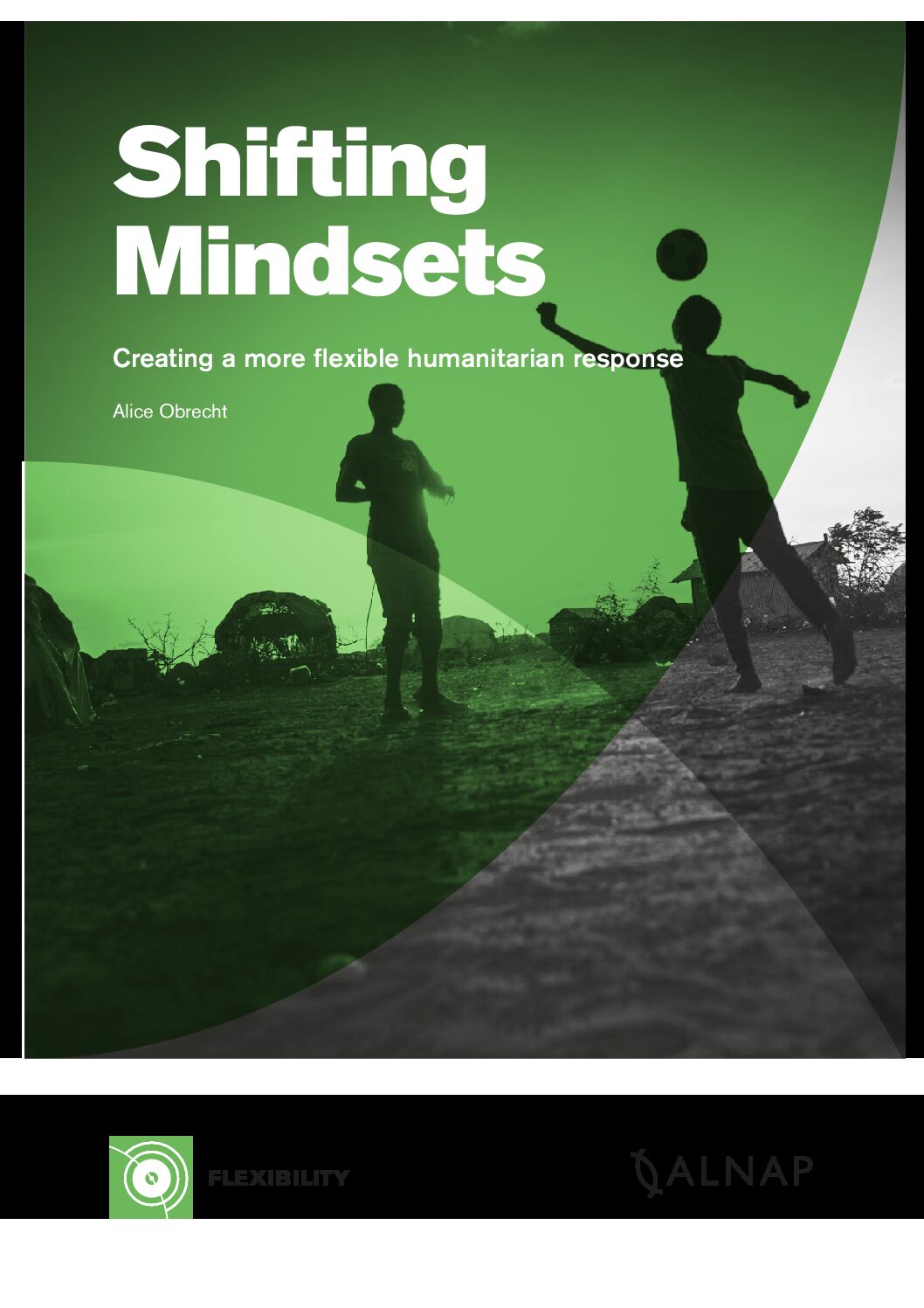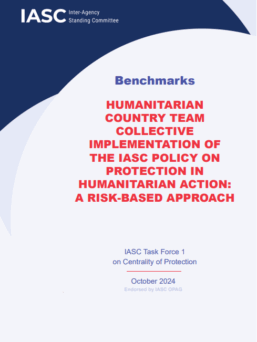Following its webinar last year on Adaptability and Flexibility within the humanitarian system, ALNAP released a report titled Shifting Mindsets: Creating a More Flexible Humanitarian Response. The report, broken into five sections, attempts to address the struggle that humanitarian agencies have grappled with when it comes to adapting context, changing the type and quantity of support at the right time, or responding quickly and appropriately to unexpected crises or challenges. The fourth section of the publication referred to as ‘Culture and People’ expatiates upon a tenet of results-based protection as it discusses how organizational culture is a crucial factor in shifting towards more outcome-oriented practices of protection.
In Chapter 4 of the report, the authors discuss “anticipatory strategies” in comparison to “adaptive strategies” as a way of achieving greater flexibility in humanitarian responses. When discussing organizational culture, adaptive strategies emphasize that it is difficult for humanitarians to plan for unforeseen changes in advance but rather must be receptive to change based on unexpected dynamics or new understanding. Anticipatory strategies, in contrast, encourage humanitarians to anticipate a range of potential situations and responses to these situations as it will help organizations and teams shift more quickly when the need arises.
How do we know when to apply both approaches? To respond to this question, the report provides varying examples that highlight the applicability for both approaches.
For anticipatory strategies, the authors referred to a surge capacity platform called ‘HumanSurge’. HumanSurge is an online platform that connects humanitarian organizations with humanitarian professionals for surge deployment on short notice. The platform was inspired by findings from a learning review that suggested localizing surge capacities enabled a quicker response in situations of crisis. Thus, the platform utilizes new approaches to localized surged systems, collaborative approaches, and good practices. Since its launch in 2016, the online tool has been employed by organizations such as CARE International, Action Against Hunger (ACF), Norwegian Refugee International, among others.
As a validation, for employing an adaptive strategy, the report cites the discussions generated through an ALNAP-workshop in September 2018. The two-day workshop on flexibility and adaptation was attended by over 60 individuals across ALNAP’s membership. During the workshop, participants emphasized that adaptive programming approaches in the humanitarian sector must not only include good recruitment but to be more resilient, must focus on “cultivating and embedding the skillsets needed for problem-solving, critical thinking and iterative decision-making.” The culture of cultivation, has been applied in Mercy Corps’ ‘People with Possibility Programme’ which is a six-week training that aims to change the working culture of teams by focusing on psychological aspects that could positively improve the teams’ dynamics. The feedback for the program from its staff has been positive as its provided lessons on how organizational culture and team building can help achieve greater flexibility in humanitarian response.
When approaching protection issues, the unpredictability of the situation is consistently daunting. Nevertheless, the strategies from the study by ALNAP which coincide with the elements of RBP, attempt to increase an organizations capacity to adapt to changing contexts while ensuring flexibility to change based on program learning.



